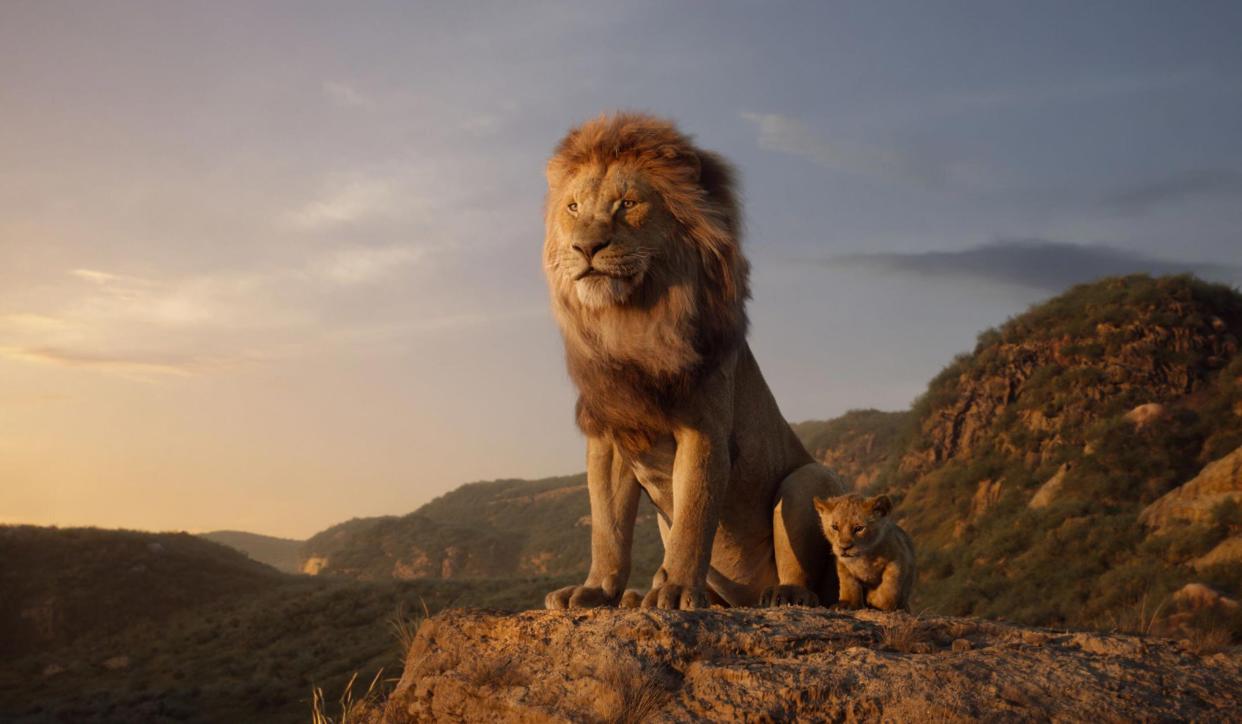Accusations of plagiarism arise again ahead of 'The Lion King' remake's release

With The Lion King remake’s release just around the corner it has caused a resurgence in discussion about the story’s origins.
Many people believe that the original animation was inspired by William Shakespeare’s Hamlet, and it’s creators say Bambi too, but others have accused it of plagiarising a Japanese manga and anime series called Kimba the White Lion.
Created by Osamu Tezuka, Kimba (or Leo has he was known in Japan) first appeared in the Jungle Emperor story in 1950, followed by an anime series in 1965 and an animated film a year later.
Upon the release of The Lion King in 1994, critics and audience members pointed out the similarities between characters, character names, aesthetic and sequences with Kimba.
Read more: Fans have mixed reaction to Lion King posters

Even the story of a young lion cub, whose father is murdered and has to grow-up and become king of the jungle, is mimicked in the 1994 film.
A thread on Twitter by @sombysomby breaks down how Disney was very aware of Tezuka’s creation and allegedly originally planned to make a Kimba movie with the creator before his death in 1989.
Osamu Tezuka drew heavy inspiration for his work and art style from Disney, so them taking his property and making an adaptation of one of his works was a dream come true. The original concept was thrown around in 1988, but unfortunately Tezuka passed away in 1989 from cancer. pic.twitter.com/92PhOvr4U5
— Hannah (@sombysomby) May 31, 2019
Disney apparently scrapped plans to remake the Japanese anime but they still seemed to use it as a foundation for The Lion King.
Kimba’s name was changed to Simba, Claw’s name was changed to Scar who also had a facial disfigurement and Pride Rock looks like it’s been taken out of scenes from the anime too.
"I thought he meant Kimba, who was a white lion in a cartoon when I was a little kid," Matthew Broderick, who voiced the adult Simba, once said.
"So I kept telling everybody I was going to play Kimba. I didn't really know anything about it, but I didn't really care."
-A loud mouth bird that looks over main character
-A love interest that’s a childhood friend
-Wise sage baboon character
-An evil uncle with a SCAR ON HIS EYE
-Lion dies and later his spirit is seen in the clouds
-Shots of a lion on top of a large rock looking over the land pic.twitter.com/bqiVJ9Fekk— Hannah (@sombysomby) May 31, 2019
After The Lion King’s release co-director Rob Minkoff denied having ever heard of the series while making the film and argues that it was "not unusual to have characters like a baboon, a bird or hyenas" in films set in Africa.
His co-director Roger Allers also denied seeing Tesuka’s work which was surprising since he himself had worked as an animator in Japan in the 1980s and not only was Jungle Emperor an infamous anime over there but Tezuka was known as Japan's Walt Disney.
"I can say there is absolutely no inspiration from 'Kimba,'" animator Tom Sito told HuffPost Entertainment. "I mean the artists working on the film, if they grew up in the '60s, they probably saw 'Kimba.' I mean, I watched 'Kimba' when I was a kid in the '60s, and I think in the recesses of my memory we’re aware of it, but I don’t think anybody consciously thought, 'Let’s rip off 'Kimba.'"
Read more: Seth Rogen says The Lion King isn’t an identical remake
When the Disney animated feature was released in Japan, several noted Japanese cartoonists, including Machiko Satonaka, signed a letter urging the studio to give credit to Jungle Emperor Leo.
Back in 1994 the president of Tezuka Productions, Takayuki Matsutani, said that the company thought the similarities between the two animations were coincidental.
“Quite a few staff of our company saw a preview of The Lion King, discussed this subject and came to the conclusion that you cannot avoid having these similarities as long as you use animals as characters and try to draw images out of them,” Matsutani said.
The Lion King is released on July 19

 Yahoo Movies
Yahoo Movies 
